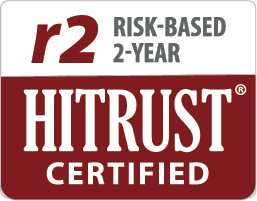When do you need DNS Services?
When you have your own domain name, someone has to manage the mapping of the name (i.e. yourdomain.com) to its numerical (IP) address on the Internet (i.e. 10.20.159.3), and tell the Internet what machine(s) will be handling the email for that domain (the "MX" records). This is like publishing the address for your name in a phone book. It is typically easiest if your web hosting company, i.e. LuxSci, manages this mapping. (See Understanding DNS Services)
LuxSci must manage the DNS settings for all domains used for web hosting. This permits us to seamlessly update the IP addresses of our web servers should the need arise without having to contact or coordinate with you. This requirement is for your web site's protection.
For domains used only for email services or for subdomains, you have the option of managing your own DNS settings at your own DNS provider.
DKIM: DomainKeys Identified Mail DNS Records
We fully support the addition of DKIM records to your DNS. DKIM is a way to messages can be digitally signed so that recipients can determine if messages have been sent by authorized machines or not. This stops forged spam and email. It is similar to but different from SPF. DKIM Generator.
SPF: Sender Policy Framework DNS Records
We fully support the addition of SPF records to your DNS. SPF is a way to specify in DNS exactly which servers are allowed to send email for a domain; email recipients can use this information to determine if an email message is forged and thus Spam.
Dynamic DNS Service
No static IP address? With dynamic DNS services you can map your domain names or subdomain names to servers connected via DSL, cable modem, or any other service that does not provide you with a static IP address.
Dynamic DNS is the term used to describe the process by which users operating computers on the Internet may map a domain name to their system even if it does not reside on a static IP address. Many cable and DSL providers change their subscribers' IP address periodically or assign a different one to their subscribers' computers each time they connect. Dynamic DNS enables users to operate Internet services such as web, email or chat servers on their home computers even if this IP address changes.
You can use dynamic DNS client software (installed on your computer) to update the IP address of your computers/servers each time you log on to your provider while getting the reliability of our dispersed network of name servers (multiple name servers deployed over different network backbones) and the added safety of our backup mail server.


